By Mandy Sleight
Article originally posted on Moneygeek. Attorney Lacy weights in on a very important issue: Discrimination in the car insurance industry. This is very much a civil rights issue.
State laws and regulations allow car insurance companies to use many factors when determining rates, leading to discrimination among specific groups. Members of minority groups, people earning low incomes, young drivers, senior drivers and people without a college degree are a few groups negatively impacted by high car insurance premiums. Learn how to spot auto insurance discrimination in its many forms, ways to reduce high premiums and how lawmakers are driving change to reduce car insurance price.
Who Is Impacted by Auto Insurance Discrimination?
Though auto insurance discrimination happens to several subsets of people, those in the Black community are most impacted by price discrimination. MoneyGeek, ProPublica and the Consumer Federation of America have put out studies showing the disproportionately high rates drivers in minority communities pay compared to ZIP codes with predominantly white residents. The American Property Casualty Insurance Association refutes these claims, arguing that insurers don’t use income or race data when determining rates for drivers. While that may be true, minority groups tend to live more in urban areas. Some of these areas lie in ZIP codes that may statistically have more auto insurance claims compared to suburban and rural areas.
Types of Discrimination
While systemic racism is a huge problem in auto price discrimination, it is unfortunately not the only type of discrimination. With so many factors used by car insurance companies, and not all of them weighing factors the same, it can be difficult to know just how much each form of discrimination negatively affects the cost of car insurance.
- TypeDescription
- AgeDrivers under the age of 25 and over 70 pay higher rates than drivers in other age groups, with teens paying the most.
- RacialMembers of minority groups pay 30% or more in insurance premiums than those in predominantly white neighborhoods.
- GenderThough it’s commonly accepted that men pay more, some studies are finding single women actually pay more than single men for car insurance.
- LocationHigh rates of accidents, theft and vandalism, and whether a car is parked on the street or in a garage can negatively impact car insurance premiums.
- OccupationFor companies who ask about occupation, blue-collar and lower-paying jobs get quoted higher car insurance premiums than higher-paying jobs.
- HomelessWith no fixed address, the increasing rates of homelessness can have a negative impact on car insurance premiums and the ability to stay insured.
- Education LevelDrivers without a college degree pay at least 10% higher car insurance rates than college degree holders.
Common Questions Asked About Car Insurance Discrimination
When it comes to car insurance price discrimination, MoneyGeek answers the most common questions below to help you better understand this pricing phenomenon.COLLAPSE ALL
Why can car insurance companies discriminate?
Insurance companies are allowed to divide drivers into separate risk pools. These groups are created based on demographics like ZIP code, education level, credit score, occupation and the type and level of coverage you had with a prior insurer if you’re shopping for a new carrier. It’s meant to provide an incentive of lower premiums to drivers who reduce their risks where possible.Can you be refused car insurance?
Absolutely. Insurance companies can use your credit score, age, location, driving record and the type of car you drive to deny your request for car insurance coverage.What can I do if I can’t afford car insurance?
If you can’t afford car insurance, there are several things you can do to make it more affordable. Driving uninsured can be more costly than keeping your insurance in place. We have an entire section below devoted to affording car insurance.Am I paying more for car insurance than I should? How do I know?
You could be. The best way to find out if you’re paying more than you should is to get a quote from multiple companies using the same criteria and coverage levels. You can compare the quotes to your insurance coverage and premiums to see if you’re paying too much.
What You Can Do if You Are Discriminated Against

If you feel you are being discriminated against while purchasing auto insurance, you have several courses of action to take. While it can be frustrating to deal with discrimination, there are agencies you can report to and measures you can take to protect yourself from discrimination by car insurance companies.
Consider taking one or more of these steps to reduce your car insurance premiums and report discrimination.1
Shop before you buy
The make and model of your car can greatly impact your insurance premiums. Before you purchase a car, get a quote from your insurance company to find out how much it will cost and if you can truly afford it.2
Get comparison quotes
Whether you’re a new driver or shopping to compare rates for your existing car insurance, you can avoid price discrimination and get the best rate by getting several comparison quotes from different companies to find the one with the best coverage and pricing.3
Do company research
Every car insurance company has its own rating system, leading to a wide range of insurance quotes. Before you commit to a company, research customer reviews and complaints to find out how others feel about pricing and how it treats its customers.4
File a complaint
Every state has a department of insurance with a director or commissioner of insurance. If you think you are being discriminated against, file a complaint with the insurance department so you can be heard.5
Let the Federal Insurance Office know
The Federal Insurance Office created an Affordability Index for people with low and moderate incomes and members of minority groups in response to auto insurance price discrimination. If you are paying more than 2% of the median income in these selected areas, report it to the FIO.6
Voice concerns to legislators
Discrimination can only be stopped when enough people oppose it. Reach out to your local and state representatives, including those in Congress and the Senate, to report suspected auto insurance price discrimination.
What Policymakers and Insurers Are Doing to Help
State and federal lawmakers and industry watchdogs are calling for reforms that would limit or do away with discriminatory car insurance practices by the insurance companies.
The U.S. House of Representatives and Senate
In July 2019, Rep. Bonnie Watson Coleman introduced the Prohibit Auto Insurance Discrimination Act, or PAID Act, before the U.S. House to combat car insurance price discrimination. Rep. Rashida Tlaid introduced the Preventing Credit Score Discrimination in Auto Insurance Act as a companion bill to the PAID Act. Senator Cory Booker re-introduced the PAID Act in September 2020, which sets to eliminate all non-driving factors from car insurance rating and eligibility, using only a person’s driving record instead. Both acts remain in committee at this time.
Economic Watchdog Groups
In June 2020, the Center for Economic Justice called on the National Association of Insurance Commissionersto study and respond to car insurance discrimination. The Special Committee on Race and Insurance, created by the NAIC, is working in 2021 to conduct research and analyze the insurance industry. Action steps are expected by the end of the year.
State Insurance Commissioners
In January 2019, the California insurance commissioner issued new regulations prohibiting gender in insurance ratings under the Gender Non-Discrimination in Automobile Insurance Rating Regulation. In February 2021, newly appointed commissioner Ricardo Lara revised draft regulations to allow drivers with low incomes to access group discounts to reduce auto insurance price discrimination.
The insurance commissioner of Washington, Mike Kreidler, issued an emergency rule in March 2021 prohibiting insurers from setting rates based on credit score for auto and home insurance for three years.
What Should You Do if You Can’t Pay Your Car Insurance?

The rate you pay for car insurance can vary widely depending on your age, gender, driving profile, vehicle type and coverage limits. If you find yourself unable to pay your car insurance, it may be tempting to stop paying it. Almost all states require you to have car insurance on all registered vehicles. Failure to do so could result in fines or tickets, and your license could be suspended along with your registration. Worse, if you drive without insurance and are involved in an accident, you could be ticketed, go to jail and have to pay out of pocket for the damage or injuries you cause.
Make Sure Your Premium Is Compliant With the Law
Every state except New Hampshire requires you to have a minimum amount of liability insurance to protect other drivers and pedestrians. The amount varies, with some requiring other coverages such as personal injury protection and uninsured motorist coverage. Drivers who choose state minimums pay higher premiums than those with higher liability limits, so consider that when insuring your car. Review your driving profile with your insurance carrier for accuracy to reduce the risk of auto insurance price discrimination.
7 Tips to Help You Pay
If you’re struggling to pay your car insurance premiums, here are some ways to reduce your insurance cost and ways to afford your car insurance.1
Suspend or lower coverage
With fewer miles driven and more people working from home during the COVID-19 pandemic, you may be able to suspend or lower your car insurance temporarily instead of paying your normal rates.2
Allow the company to monitor your driving
Most car insurance companies offer telematics programs that monitor driving habits through a car plug-in or smartphone app. If you’re a generally safe driver, this can reduce the amount you pay for auto insurance.3
Review your coverages
Take a look at your current coverages and see if you can make changes to reduce your car insurance costs. If your car is old and paid off, you may no longer need full coverage. Increasing your deductibles can also reduce your out-of-pocket costs.4
Shop around
This can be a great way to afford your car insurance. By getting quotes from multiple companies, you may be able to save without sacrificing coverage.5
Find rebates
If you can’t find any other ways to save or reduce your car insurance premium, consider cutting costs on other forms of insurance, like home and health insurance. There may be ways to save there, get rebates or reduce coverage to afford your car insurance premium.6
Bundle your policies
Bundling home and auto insurance is another way to save. It also makes it easier because both policies are with the same company, even if you just rent your home or apartment.7
Take a defensive driving course
If your insurance company offers a discount for completing a defensive driving course, you can reduce your car insurance premium and become a safer driver. This can also prevent future tickets and accidents, keeping future premiums low with a clean driving record.
Available Discounts
Taking advantage of all the available discounts offered by your car insurance company can also keep rates affordable. Ask about all discounts, which vary by state and carrier. If your driving habits change over time, don’t forget to mention it to your insurance company to see you’re now eligible for a discount or a reduction in premium cost.
Experts on Car Insurance Discrimination for Drivers With Low Incomes
To help navigate auto insurance price discrimination intricacies, MoneyGeek interviewed several industry leaders in different areas of expertise. These experts were asked questions about low income and other discriminating factors in car insurance. Their responses are below.
- Why are insurance companies charging people with low income for factors that have nothing to do with their driving?
- What can people with low income do to get low rates on their car insurance, besides taking advantage of discounts?
Attorney Lacy Weighs In . . .
Why are insurance companies charging people with low income for factors that have nothing to do with their driving?
Car insurance companies charge low-income people more money, which disproportionately affects minorities, on the broken assumption that low-income neighborhoods lead to more crime. Insurance companies do usually cover stolen vehicles under their policies. Thus, their rationale is that more vehicles are stolen in poor neighborhoods.
Besides the fact that this stereotype is not necessarily founded by data, most insurance companies know that they can increase their bottom line by targeting groups of people who often do not have the resources to combat these discriminatory policies.
What can people with low income do to get low rates on their car insurance, besides taking advantage of discounts?
The best thing that people can do is to contact a consumer protection lawyer to file a class action on their behalf with similarly-situated people. Until the general public puts collective pressure on insurance companies, requiring them to pay out large settlements, they will likely not change their policies. They have no financial incentive to do so until someone makes them.
Protection Resources for Drivers
If you feel you’ve been a victim of auto insurance price discrimination in any form, there are many resources available to help you. This group of nonprofits, government resources, state-level programs and more can assist you with your claim and help you find an attorney or other legal recourse to fight discrimination.
- Federal Insurance Office: The FIO was created to monitor the insurance industry and how underserved communities are being treated within the industry. FIO will also take complaints and provide further resources to file claims about auto insurance price discrimination.
- Consumer Federation of America: The CFA is a group of consumers working against unfair and discriminatory practices by calling on state insurance departments and legislatures to end using socioeconomic factors.
- Consumer Financial Protection Bureau: The CFPB has a consumer complaint database for consumers to file complaints which are sent to companies for response. Afterward, responses are published, which can help determine which company to do business with.
- Consumer Reports: This independent nonprofit offers fairness, transparency and truth for consumers to make the best choices in the marketplace to spend their money.
- Consumer Watchdog: This non-partisan group works with consumers to expose injustice and discrimination by investigating claims and bringing national attention where needed. Advocacy and help with legal claims can also be found here.
- National Association of Insurance Commissioners: The NAIC supports insurance regulators to protect consumers by keeping a fair insurance market. Learn about insurance products, search for insurance company complaints and file your own complaint about a company or agent.
- National Conference of State Legislatures: Learn about state policy and proposed legislation on car insurance discrimination. The NCSL helps to advance ideas in your state and federally on all topics.
- National Disability Rights Network: The NDRN can help if you feel you’ve been discriminated against due to mental or physical disability. Each state has a disability advocate to help with legal recourse and other resources.
- United Policyholders: This nonprofit organization provides resources and a voice for consumers in all states and for all types of insurance to “level the playing field between insurers and insureds.”
- USA.gov: This resource link can help you find your state consumer protection office to file a complaint about auto insurance prices and other forms of discrimination.



















